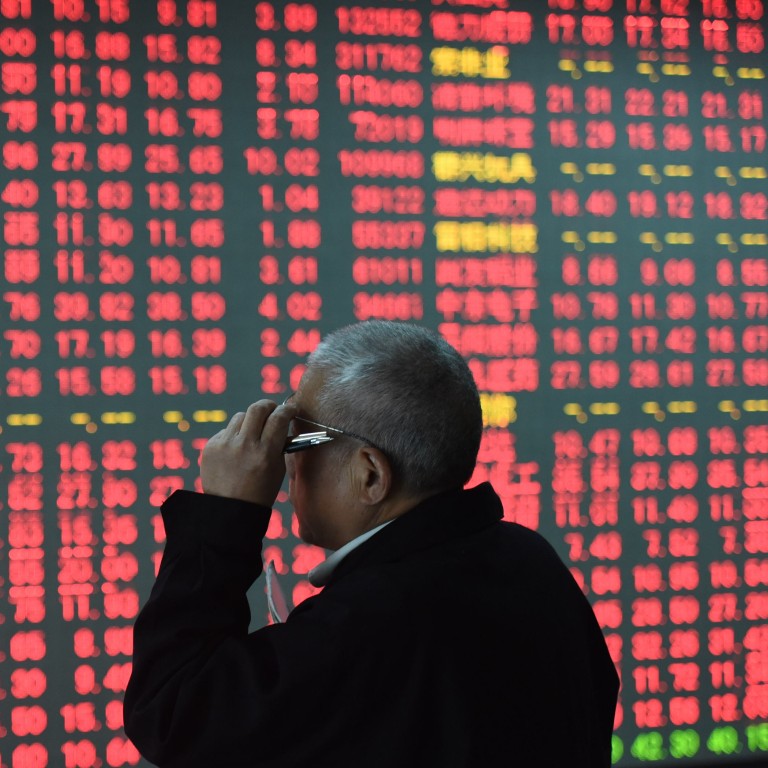
Politics' importance in getting China's markets back to normal
Leadership of Xi Jinping gets back on its feet as initial public offerings are resumed after a summer of bad news and sabotage defence
Why did Beijing resume initial public offerings despite fears of market panic?
There are all kinds of logical explanations such as preparing the ground for further listings of state enterprises for the upcoming reforms.
But the interesting, yet hilarious, one is politics.
Take the re-opening as a loud and clear announcement that the stock market is back to normal, according to the theory.
Or, to be more precise, take it as an announcement that the Xi Jinping leadership is back on its feet from an "economic sabotage".
To understand this theory, one has to rewind the clock back to summer.
When summer broke, China was full of good news. There was magic in the air with the establishment of the Asia Infrastructure Investment Bank, China's very own IMF with which it would rule the new world order. American allies defied the hegemon's wish and joined the China-led bank. Xi's stature was at its height.
But things took a nosedive even before the summer heat eased. There was the disastrous explosion in Tianjian, the cause of which to this day remains a mystery.
Then, the stock market went from bang to bust overnight. The world witnessed in shock as Chinese cadres scrambled for a frantic, yet futile rescue.
While outsiders saw the crash as a result of excessive leverage, some called it sabotage.
"The enemy is aiming at the five-star flag. The crash is no accident," said Lin Zuoming, chairman of defence company Aviation Industry Corp of China in a state media interview. "It is the result of well-planned malicious short selling. It is an economic war against the country."
Contrary to general belief, the enemy is from within. Creditability of the leadership, rather than the money, was their target.
Be it the handling of economic ills or punishment of corrupt officials, what chance is there without the public believing in their leaders? The crash left the public and the world in doubt.
Xi staged a spectacular fightback.
Police was sent in to arrest whoever was involved in the short selling. Among them were the head and lieutenants of the state market rescue team. On November 1, the police announced two major crackdowns.
Next, financial regulators and institutions - which have long been the turf of Xi's rivals and so far been spared in Xi's battle against corruption - saw the arrival of graft fighters.
Terror is mounting within financial circles and suicides are becoming frequent.
Then, against growing devaluation pressure, Beijing liberalised the yuan exchange rate to make it more market-based, pushing the International Monetary Fund further into accepting the renminbi as a reserve currency.
If the IMF does make this decision this month, it will be the stuff history is made of.
Not just at home, Xi is on a leadership-building drive abroad as well. Mega deals with European leaders, red-carpet razzmatazz in Britain, the first presidential visit to Hanoi in a decade and a historic meeting with Taiwan President Ma Ying-jeou today.
Once again, Xi Dada is seen as a leader capable of putting China in the driving seat on the world stage.
What better time to announce a policy decision that would shout total control? Resuming IPOs, traditionally seen as a curse to market sentiment as it soaks up cash from the market and leaves existing equity high and dry, would do just that.
Of course, it needs to be orchestrated. Hence the A-share market has gone up significantly this week with broker stocks gaining about 30 per cent.
It is hard to imagine how anyone would be brave enough to stage insider trading on such a scale when the cops and graft fighters are watching.
Notice how the Singapore-traded FTSE China A50 index dived on the announcement of IPO resumption. But it managed an impressive rebound and ended trading 2 per cent up yesterday.
Now you see why your columnist describes this as a "hilarious" explanation.
It is full of conspiracy theories. There is no evidence in support. Besides, it is implying that the state has interfered in the market to pursue some political purpose.
Hilarious, right?

